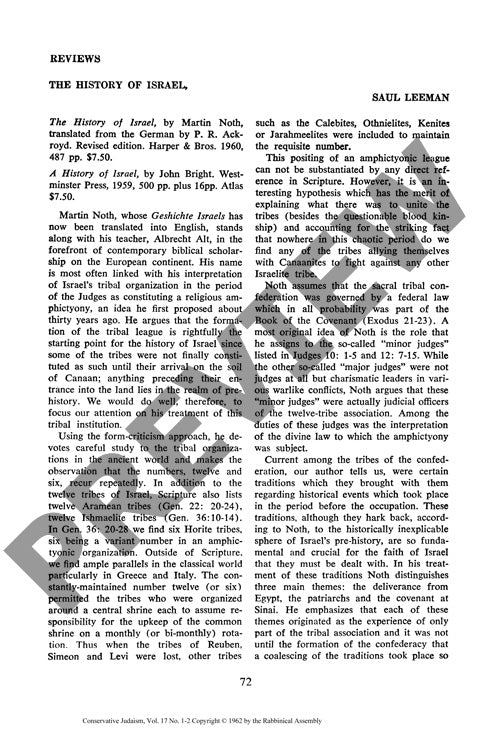Book Reviews
Couldn't load pickup availability
Modern archaeological discoveries and Near Eastern studies have fundamentally transformed our understanding of ancient Israelite history, challenging long-held assumptions about biblical interpretation. Three seminal works - Martin Noth's "The History of Israel," John Bright's "A History of Israel," and Arthur Hertzberg's "The Zionist Idea" - exemplify the growing divide between European and American approaches to biblical scholarship. Through critical analysis of scholarly methods, archaeological evidence, and form-criticism, significant divergences emerge in how scholars approach the amphictyonic hypothesis, biblical document dating, and early Israelite traditions. Noth's controversial framework posits a twelve-tribe religious confederation while separating the Exodus and Sinai traditions. In contrast, Bright's work, influenced by the Albright school, offers a more historically affirming view of biblical narratives, supported by archaeological findings. The reviews extend beyond historical analysis to examine sociological studies of contemporary Jewish communities and values. As scholarship moves away from earlier Wellhausenian interpretations toward more conservative datings and greater acceptance of biblical historicity, these works illuminate the persistent tension between critical academic analysis and traditional religious interpretation in understanding both ancient Israelite history and modern Jewish identity.

More Information
-
Physical Description
-
Publication Information
Published 1962
ISBN
-
Publication Credits

